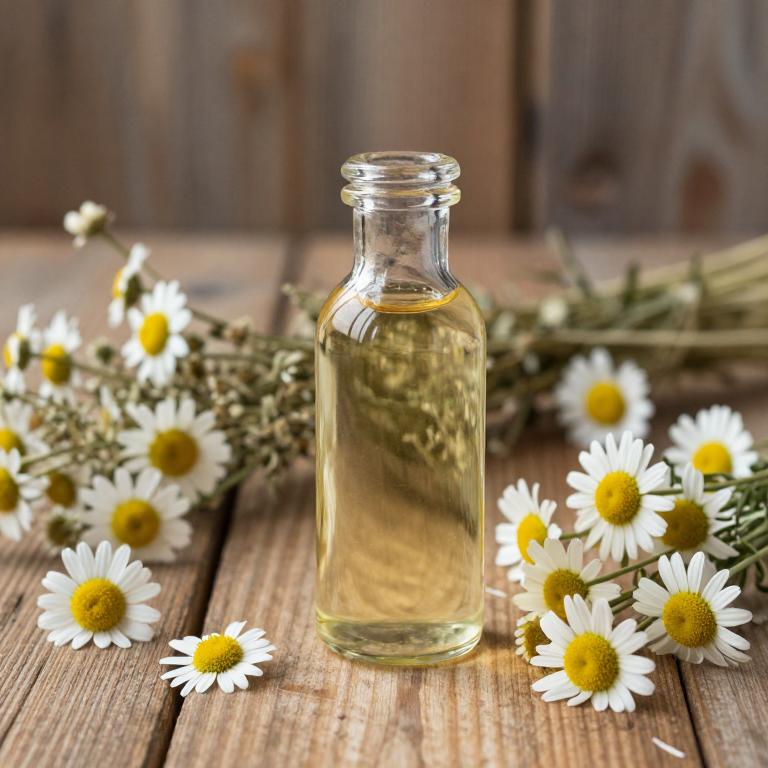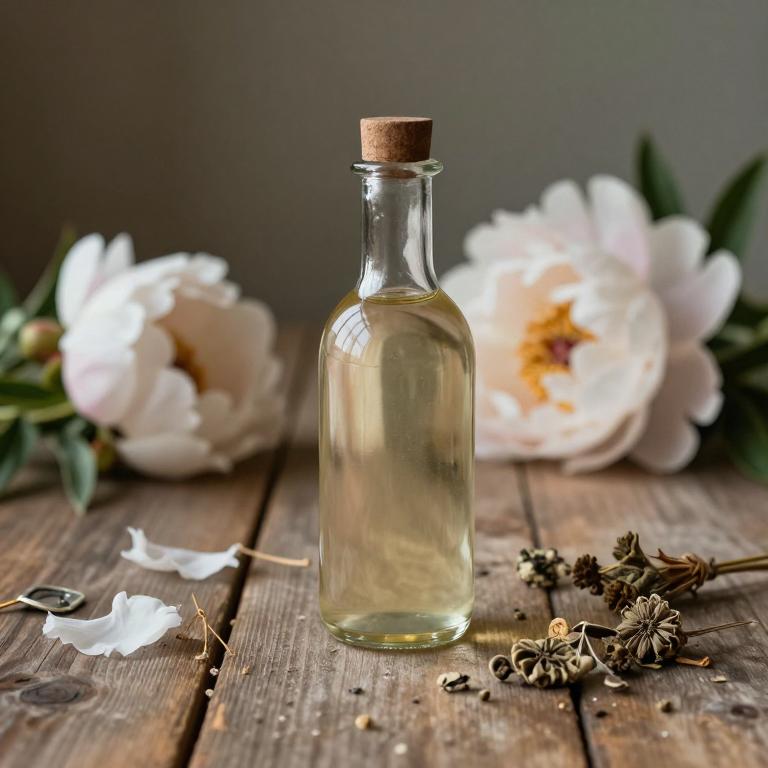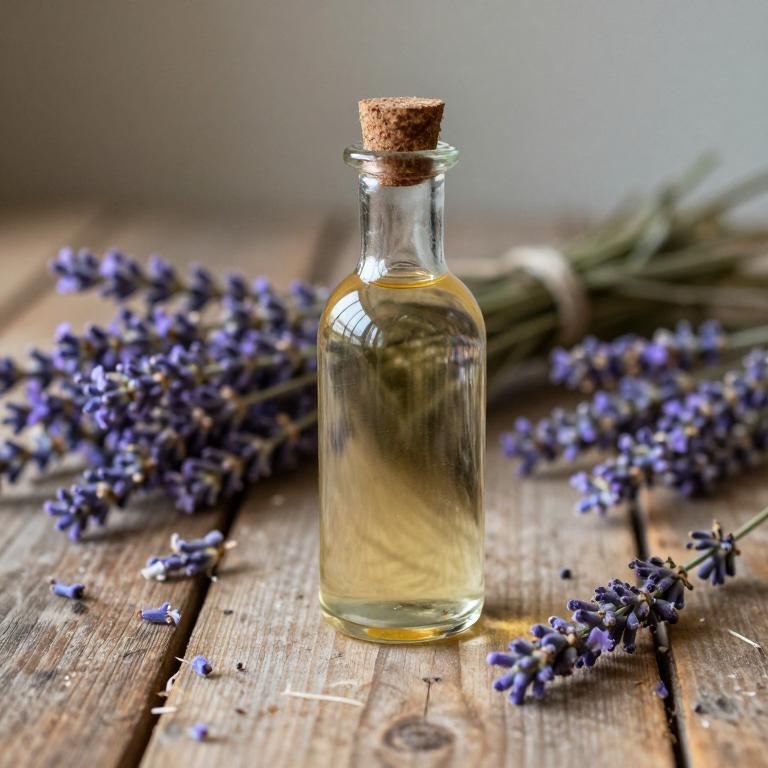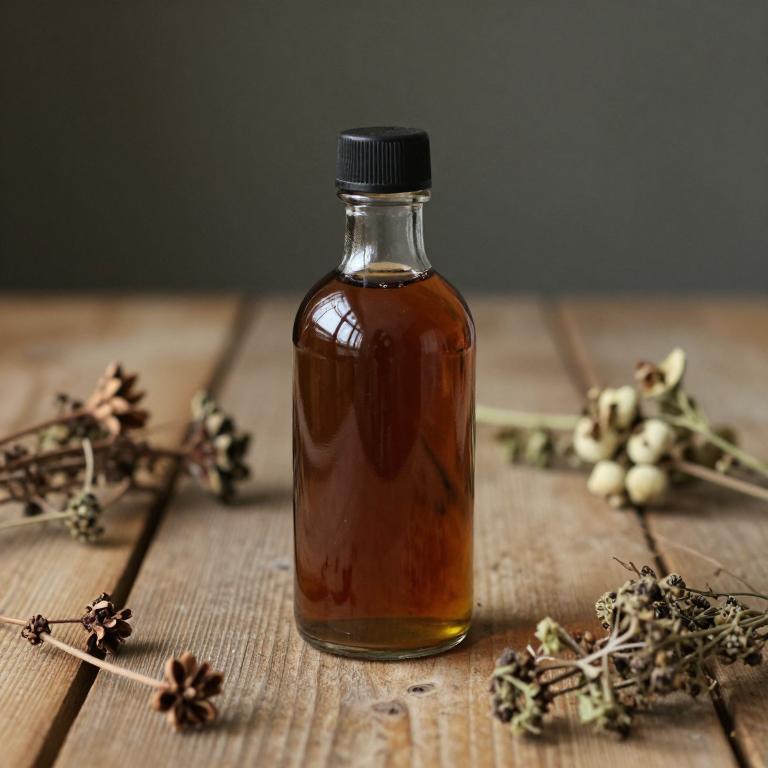10 Best Herbal Syrups For Cramps

Herbal syrups for cramps are natural remedies often used to alleviate menstrual or digestive discomfort by combining soothing herbs with a sweet, palatable base.
Common ingredients include cramp bark, ginger, raspberry, and chamomile, which are known for their anti-inflammatory and muscle-relaxing properties. These syrups are typically easy to consume and can be taken regularly as part of a holistic approach to managing cramps. They are especially popular among those seeking alternatives to over-the-counter pain medications.
However, it's important to consult with a healthcare provider before use, especially for pregnant women or individuals with existing health conditions.
Table of Contents
- 1. Ginger (Zingiber officinale)
- 2. Turmeric (Curcuma longa)
- 3. Stinging nettle (Urtica dioica)
- 4. Chaste tree (Vitex agnus-castus)
- 5. Fennel (Foeniculum vulgare)
- 6. Dog rose (Rosa canina)
- 7. Chamomile (Matricaria chamomilla)
- 8. Chinese peony (Paeonia lactiflora)
- 9. English lavender (Lavandula angustifolia)
- 10. Black cohosh (Cimicifuga racemosa)
1. Ginger (Zingiber officinale)

Zingiber officinale, commonly known as ginger, has been traditionally used for its anti-inflammatory and analgesic properties, making it a popular ingredient in herbal syrups for relieving cramps.
These syrups typically combine fresh or powdered ginger with sweeteners and other herbs to create a soothing, easy-to-consume formulation. The active compounds in ginger, such as gingerol and shogaol, help relax muscles and reduce pain associated with menstrual cramps, digestive issues, and muscle spasms. Herbal syrups made from zingiber officinale are often preferred for their natural ingredients and gentle effect on the body.
They can be an effective alternative or complement to conventional remedies for cramps, especially for those seeking a holistic approach to health.
2. Turmeric (Curcuma longa)

Curcuma longa, commonly known as turmeric, has been traditionally used for its anti-inflammatory and analgesic properties, making it a popular ingredient in herbal syrups for relieving menstrual cramps.
These syrups often combine turmeric with other herbs like ginger and black pepper to enhance absorption and effectiveness. The active compound curcumin in turmeric helps reduce uterine inflammation and muscle spasms, providing natural relief from cramping discomfort. Herbal syrups containing curcuma longa are typically easy to consume and can be a gentle alternative to over-the-counter pain medications.
However, it is important to consult a healthcare provider before using these syrups, especially for pregnant women or those with existing medical conditions.
3. Stinging nettle (Urtica dioica)

Urtica dioica, commonly known as stinging nettle, has been traditionally used for its potential therapeutic properties, including relief from cramps.
Herbal syrups made from Urtica dioica are often prepared by combining the dried leaves with honey or other natural sweeteners to create a palatable remedy. These syrups are believed to support digestion and reduce muscle spasms, making them a popular choice for menstrual cramps and other types of abdominal discomfort. The high concentration of nutrients like iron, magnesium, and silica in nettle may contribute to its effectiveness in alleviating cramp-related symptoms.
While generally considered safe, it is advisable to consult a healthcare professional before using nettle syrups, especially for prolonged periods or in combination with other medications.
4. Chaste tree (Vitex agnus-castus)

Vitex agnus-castus, commonly known as chasteberry, is a herbal remedy often used in the form of a syrup to alleviate menstrual cramps and other symptoms associated with hormonal imbalances.
This herb is believed to support the function of the pituitary gland, which in turn may help regulate menstrual cycles and reduce cramping. Herbal syrups containing vitex are typically made from the dried fruit of the plant and are often recommended for women experiencing premenstrual syndrome (PMS) or irregular periods. The soothing effects of vitex may help ease discomfort by promoting hormonal balance and reducing uterine spasms.
As with any herbal remedy, it is advisable to consult a healthcare professional before use, especially if pregnant or taking other medications.
5. Fennel (Foeniculum vulgare)

Foeniculum vulgare, commonly known as fennel, has been traditionally used in herbal syrups to alleviate cramps, particularly in the digestive system.
The essential oils found in fennel, such as anethol and limonene, possess antispasmodic properties that help relax smooth muscles, reducing the intensity of cramping. These herbal syrups are often prepared by infusing fennel seeds in a base of honey or sugar syrup, making them easy to consume and effective for soothing gastrointestinal discomfort. Fennel syrup is especially popular for relieving symptoms of colic in infants and menstrual cramps in adults.
Due to its mild and pleasant flavor, it is a versatile remedy that can be easily integrated into daily wellness routines.
6. Dog rose (Rosa canina)

Rosa canina, also known as dog rose, is a traditional herbal remedy that has been used for centuries to support women's health, particularly in alleviating symptoms of menstrual cramps.
Rosa canina herbal syrups are made from the dried fruits of the Rosa canina plant, which are rich in vitamin C, antioxidants, and bioflavonoids. These syrups are often used to reduce inflammation and ease the discomfort associated with menstrual cramps due to their anti-inflammatory and pain-relieving properties. The gentle nature of Rosa canina makes it a suitable option for those seeking natural relief without strong pharmaceutical side effects.
When taken as directed, Rosa canina herbal syrup can be a helpful addition to a holistic approach for managing menstrual discomfort.
7. Chamomile (Matricaria chamomilla)

Matricaria chamomilla, commonly known as chamomile, is a herbal remedy widely used for its calming and soothing properties.
Chamomile herbal syrups are often formulated to alleviate menstrual cramps due to their anti-inflammatory and antispasmodic effects. These syrups can help reduce the intensity of uterine contractions and ease pain associated with dysmenorrhea. The essential oils in chamomile, such as bisabolol and alpha-bisabolol, contribute to its effectiveness in relieving cramping.
When taken as directed, chamomile syrup can be a gentle and natural option for managing menstrual discomfort.
8. Chinese peony (Paeonia lactiflora)

Paeonia lactiflora, commonly known as the peony, has been traditionally used in herbal medicine for its soothing properties, particularly for relieving menstrual cramps and digestive discomfort.
When prepared as a herbal syrup, it offers a convenient and palatable way to consume its medicinal benefits. The syrup is believed to work by reducing inflammation and easing muscle spasms, making it a popular remedy for women experiencing painful menstrual cramps. Its mild flavor and pleasant aroma also make it an appealing option for those who prefer natural remedies over conventional medications.
However, it is important to consult with a healthcare professional before using paeonia lactiflora syrup, especially during pregnancy or if taking other medications.
9. English lavender (Lavandula angustifolia)

Lavandula angustifolia, commonly known as English lavender, is often used in herbal syrups to help alleviate menstrual cramps due to its calming and antispasmodic properties.
The essential oils and compounds in lavender have been shown to reduce uterine contractions and ease pain associated with cramping. These herbal syrups typically combine lavender with other soothing ingredients like ginger or chamomile to enhance their effectiveness. When taken internally, lavender-based syrups can provide a natural alternative to conventional pain relievers, offering gentle relief without harsh side effects.
However, it is important to consult a healthcare provider before use, especially for pregnant women or those with existing health conditions.
10. Black cohosh (Cimicifuga racemosa)

Cimicifuga racemosa, commonly known as black cohosh, is a herbal remedy that has been traditionally used to alleviate menstrual cramps and other symptoms associated with hormonal imbalances.
Herbal syrups made from Cimicifuga racemosa are often formulated to provide a mild, natural alternative to over-the-counter pain relievers for women experiencing dysmenorrhea. These syrups are typically prepared using standardized extracts of the root and are available in various dosages to suit individual needs. Studies suggest that black cohosh may help reduce the intensity and duration of menstrual cramps by influencing hormonal pathways and muscle relaxation.
However, it is important to consult with a healthcare provider before using these syrups, especially during pregnancy or if taking other medications, to ensure safety and efficacy.